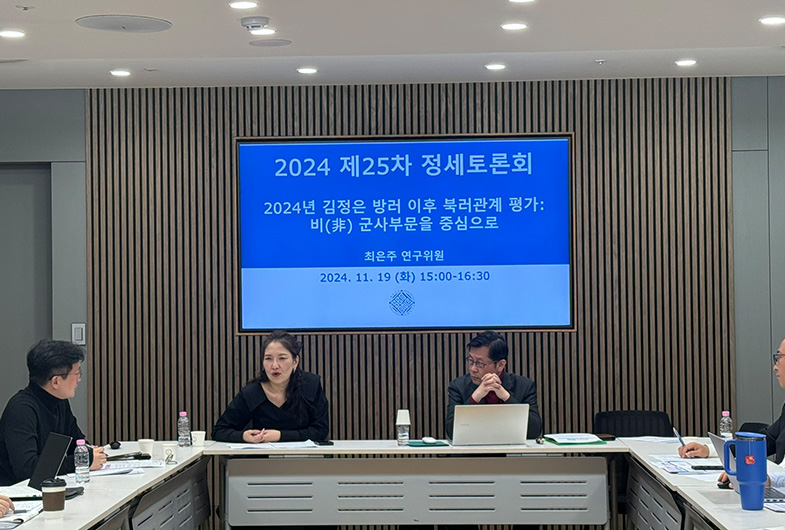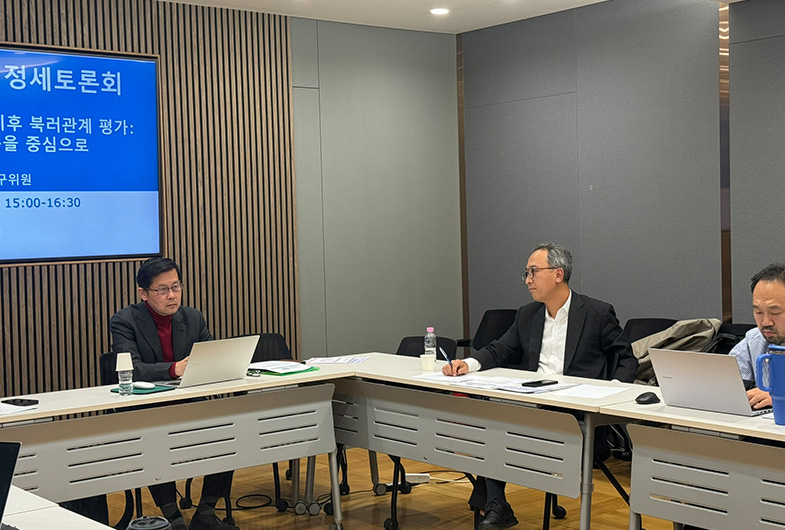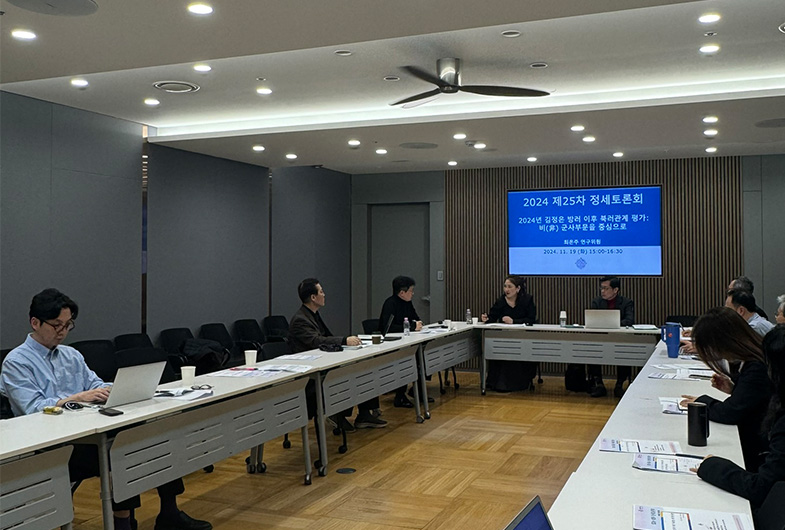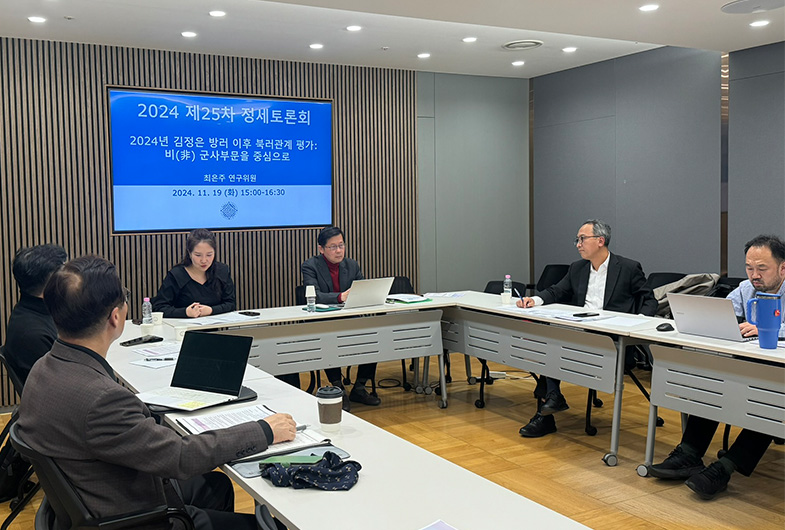On November 19th, Research Fellow Eun-ju Lee presented "Assessment of North Korea-Russia Relations Following Kim Jong-un's 2023 Visit to Russia: Focus on Non-Military Sectors" at the 25th Colloquium.
The discussion was moderated by Seong Chang Cheong, Director of the Center for Korean Peninsula Strategy.
In 2023, North Korea and Russia continued their exchanges through mutual high-level visits across various sectors following their summit meeting. This ongoing engagement culminated in June 2024 with the officialization of their agreements through the “Comprehensive Strategic Partnership Treaty” between North Korea and Russia.
Amid shifting international dynamics, the strategic interests and objectives of North Korea and Russia aligned, fostering a close relationship. As the Russia-Ukraine war prolonged, Russia sought to secure military supplies, while North Korea sought economic breakthroughs, leading to a convergence of interests. During the border closure period due to COVID-19, North Korea emphasized its shared understanding of international affairs with Russia through diplomatic exchanges of letters, signaling its commitment to strengthening ties. After lifting its border closure, North Korea resumed diplomatic activities through a summit with Russia.
In September 2023, a summit was held between Chairman Kim Jong-un and President Vladimir Putin at Russia’s Vostochny Cosmodrome. It is presumed that the discussions encompassed not only military cooperation but also collaboration in fields such as economics and logistics. Following the summit, Chairman Kim visited Vladivostok and primarily toured Russian institutions related to military, economic, and scientific technology, demonstrating a keen interest in scientific and technological cooperation with Russia. Practical measures to enhance cooperation in defense and security were reportedly discussed.
In the future, non-military cooperation between North Korea and Russia is expected to gradually expand into areas such as trade, infrastructure development, human exchange, science and technology, regional exchanges centered on border areas, participation in international conferences and regional organizations, and the health and medical sectors.
Since trade statistics have not been released following Russia’s 2022 conflict with Ukraine, it is challenging to accurately estimate the trade volume between North Korea and Russia. However, based on analyses from overseas institutions and statements by key Russian officials, the trade volume appears to be recovering.
Since Kim Jong-un took power, North Korea has emphasized “building a strong science and technology nation,” promoting development across all sectors, especially the economy, through advanced scientific and technological foundations. However, progress has been largely stagnant due to international sanctions. The signing of this treaty raises the possibility of resuming stalled scientific and technological exchanges.
During the 2024 summit, North Korea and Russia signed a follow-up agreement titled the “Agreement on Cooperation in Health, Medical Education, and Science” (hereafter referred to as the “Health Cooperation Agreement”). In the immediate term, the agreement is expected to focus on Russian-supported projects in North Korea’s health and medical sectors.



